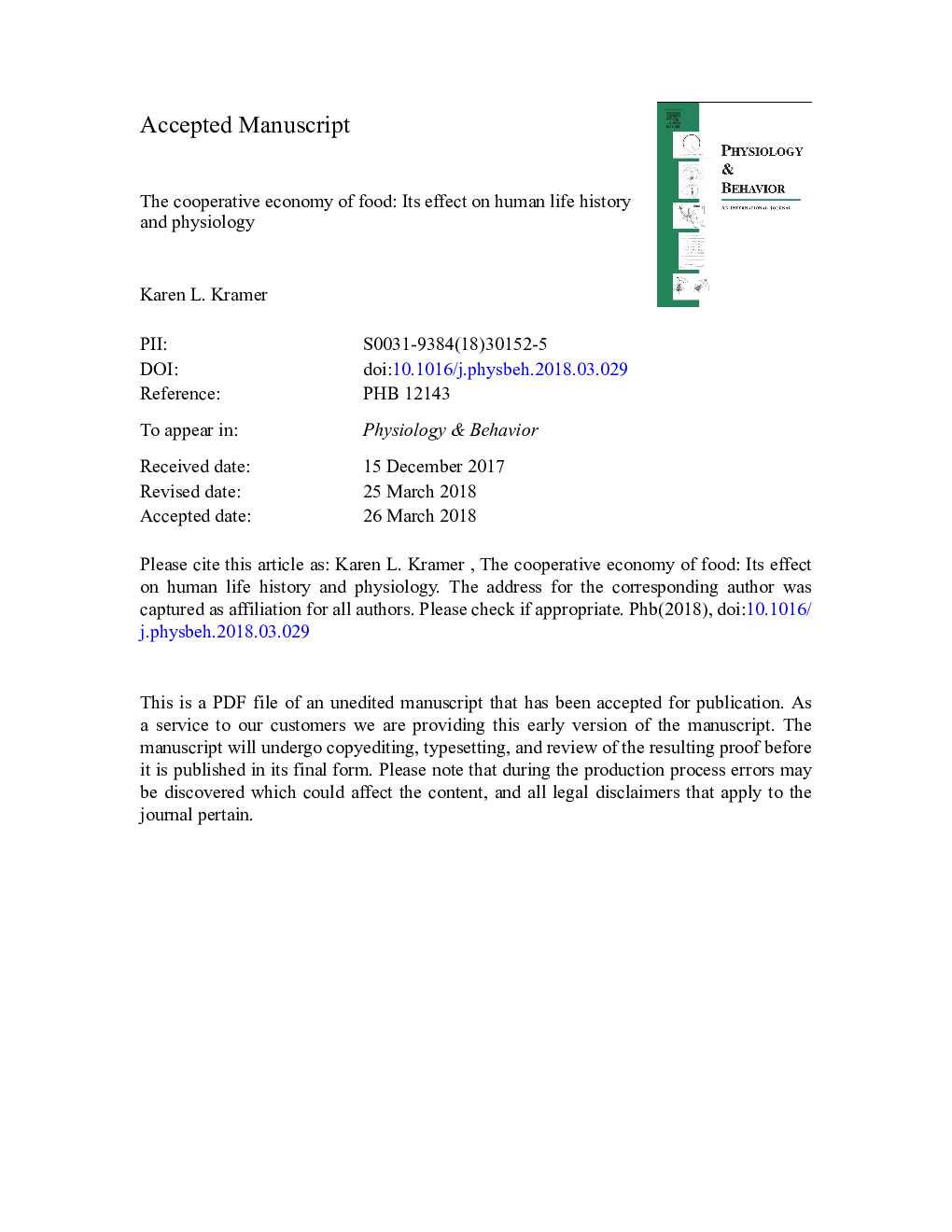| کد مقاله | کد نشریه | سال انتشار | مقاله انگلیسی | نسخه تمام متن |
|---|---|---|---|---|
| 8650368 | 1571125 | 2018 | 32 صفحه PDF | دانلود رایگان |
عنوان انگلیسی مقاله ISI
The cooperative economy of food: Implications for human life history and physiology
ترجمه فارسی عنوان
اقتصاد تعاونی مواد غذایی: پیامدهای تاریخ بشر و فیزیولوژی
دانلود مقاله + سفارش ترجمه
دانلود مقاله ISI انگلیسی
رایگان برای ایرانیان
کلمات کلیدی
موضوعات مرتبط
علوم زیستی و بیوفناوری
بیوشیمی، ژنتیک و زیست شناسی مولکولی
فیزیولوژی
چکیده انگلیسی
The human diet has undergone substantial modifications since the emergence of modern humans and varies considerably in today's traditional societies. Despite these changes and cross-cultural differences, the human diet can be characterized by several common elements. These include diverse, high quality foods, technological complexity to acquire and process food, and the establishment of home bases for storage, processing and consumption. Together these aspects of the human diet challenge any one individual to independently meet all of his or her daily caloric needs. Humans solve this challenge through food sharing, labor exchange and the division of labor. The cooperative nature of the human diet is associated with many downstream effects on our life history and physiology. This paper overviews the constellation of traits that likely led to a cooperative economy of food, and draws on ethnographic examples to illustrate its effects on human life history and physiology. Two detailed examples using body composition, time allocation and food acquisition data show how cooperation among Savanna Pumé hunter-gatherers affects activity levels, sexual dimorphism in body fat, maturational pace and age at first birth.
ناشر
Database: Elsevier - ScienceDirect (ساینس دایرکت)
Journal: Physiology & Behavior - Volume 193, Part B, 1 September 2018, Pages 196-204
Journal: Physiology & Behavior - Volume 193, Part B, 1 September 2018, Pages 196-204
نویسندگان
Karen L. Kramer,
